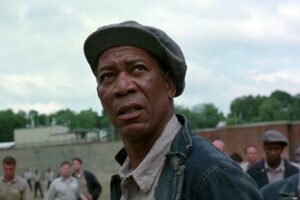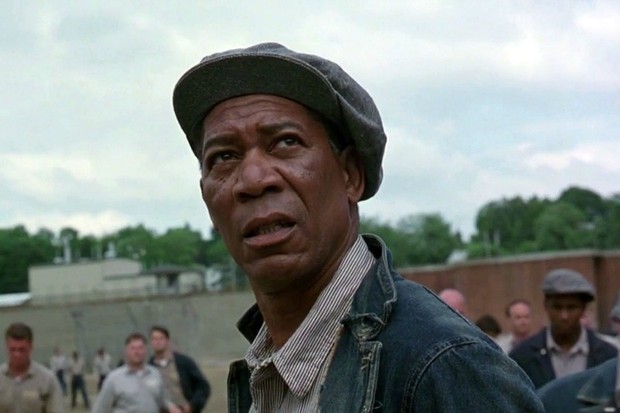Did Morgan Freeman Study Acting?
Exploring the Legendary Actor’s Journey to Mastering His Craft
(By Carmichael Phillip)

A Natural Talent or a Disciplined Student?
Morgan Freeman’s voice, presence, and mastery of character have earned him a permanent place among Hollywood’s elite. But one question often arises among fans and aspiring actors alike: Did Morgan Freeman study acting? The answer is both simple and rich in context. Freeman, despite his seemingly effortless performances, indeed spent years honing his craft. His journey was not one of overnight success but rather a slow and studied ascent built on experience, discipline, and dedication.
While Freeman did not take the conventional path through high-profile drama schools like Juilliard or NYU Tisch, he absolutely studied acting—in classrooms, on stages, and through mentorships. His story is one of rigorous self-education and immersive theater work that gave him the tools to become a master performer.
Early Exposure to Performance
Morgan Freeman was born on June 1, 1937, in Memphis, Tennessee. He began acting at a very young age, performing in school plays. His first role came at the age of nine when he played the lead in a school production. It was clear from the beginning that Freeman had a knack for performance. After graduating from Broad Street High School in Mississippi in 1955, Freeman turned down a partial drama scholarship to Jackson State University and instead joined the U.S. Air Force.
However, the acting bug never left him. After serving in the military, Freeman moved to Los Angeles to study acting more seriously. He took classes at the Pasadena Playhouse, a respected institution known for producing top-tier actors. It was here that Freeman began to understand the depth and discipline required in acting.
In an interview with The Actors Studio, Freeman stated:
“Acting is not pretending. Acting is doing. It’s about truth. You find the truth of the character and the story, and then you live it.”
Training Grounds: The Pasadena Playhouse
Though he didn’t receive a formal college degree in theater, Freeman’s time at the Pasadena Playhouse was pivotal. The school, founded in 1917, was known for its intensive training and theater-focused curriculum. Freeman studied the fundamentals of stagecraft—voice, movement, character development, and dramatic analysis.
It was here that he learned to ground his characters in emotional truth rather than theatricality. According to several biographical sources, the Playhouse emphasized classical techniques and required students to perform regularly, allowing Freeman to absorb lessons through direct experience.
Freeman once remarked:
“Theater is where I learned to act. I mean really act. You can’t fake it on stage, not when there are people right in front of you watching your every move.”
This formative training shaped the man who would eventually deliver unforgettable performances in The Shawshank Redemption, Driving Miss Daisy, Se7en, and Million Dollar Baby.
Learning on the Job: Stage and Screen
Morgan Freeman’s career didn’t take off immediately after his training. He spent years in theater, television, and smaller film roles before becoming a household name. He worked with companies such as the American Negro Theatre and later joined the New York Shakespeare Festival, where he continued refining his craft.
Theater, especially classical work like Shakespeare, requires an actor to deeply understand language, timing, and emotional nuance—skills that Freeman visibly carries into every performance.
In an interview with The Guardian, Freeman said:
“There is no greater teacher than the audience. They let you know immediately what’s working and what’s not.”
From the children’s television show The Electric Company to critically acclaimed stage roles in Hello, Dolly! and Coriolanus, Freeman never stopped learning. Each performance became a stepping stone, a lesson in subtlety, restraint, and presence.
No Diploma, But a Lifetime of Learning
Although Morgan Freeman doesn’t hold an MFA or any formal degree in acting, his education was hands-on, intense, and deeply rooted in experience. He is a testament to the idea that education doesn’t always come with a certificate.
Freeman also credits watching other actors and studying films as part of his education. He has often praised the performances of actors like Spencer Tracy, Marlon Brando, and Sidney Poitier. He has said he would rewatch films repeatedly, analyzing their performances and how they created believable, powerful characters.
“You can learn a lot just by watching. The best actors make it look easy, but when you look closely, you see the work,” Freeman once noted in a conversation with Esquire.
This approach—constant observation, analysis, and application—formed the backbone of his ongoing study.
Mentorship and Self-Discipline
In lieu of academic credentials, Freeman benefited immensely from mentorship and self-discipline. He often speaks of the importance of humility and consistency in acting. His relationship with stage directors and fellow actors served as a feedback loop, helping him refine each performance.
He once told NPR:
“If you think you’ve got it all figured out, you’re done. Every role is a new challenge, a new chance to learn.”
Freeman’s view of acting as a continuous learning process helped him stay grounded even after global recognition. The humility he brings to his work is not accidental—it’s the result of years spent building his craft from the ground up.
The Proof Is in the Performance
Though we often associate academic credentials with expertise, in Morgan Freeman’s case, the evidence of his training lies in his performances. His ability to inhabit roles with authenticity, emotional weight, and gravitas speaks to a lifetime of careful study.
His portrayal of Red in The Shawshank Redemption is taught in film schools as a masterclass in restraint and subtlety. His role as God in Bruce Almighty showcases his ability to bring warmth and wisdom to fantastical roles. And his narration, praised for its deep, authoritative tone, is as much a result of vocal control as it is of his acting training.
Director Frank Darabont once said:
“Morgan doesn’t act. He becomes. That’s a rare gift and it’s something that comes from years of study, observation, and practice.”
Legacy and Influence
Freeman’s journey as an actor who studied through experience rather than traditional institutions serves as an inspiration for countless aspiring performers. He’s a reminder that there is no singular path to success in the performing arts.
His story encourages others to pursue learning in all its forms—whether through stage, mentorship, analysis, or simple perseverance. Today, Freeman is not just known as an actor; he’s viewed as a master craftsman, someone whose study of acting never truly ended.
He put it best when he said:
“You never arrive. You just keep going. Every script, every scene, every line is another chance to get it right.”
Conclusion: Yes, Morgan Freeman Studied Acting
So, did Morgan Freeman study acting? Absolutely. He may not have pursued a formal university degree, but his education was robust, rigorous, and ongoing. From the Pasadena Playhouse to Shakespeare in the Park, from mentorships to movie sets, Freeman immersed himself in the craft with the devotion of a scholar.
His path proves that study doesn’t always happen within walls and syllabi—it can happen on stage, on screen, and in front of audiences night after night. Morgan Freeman’s study of acting is written in the lasting impact of his work, a legacy that will inspire for generations.




